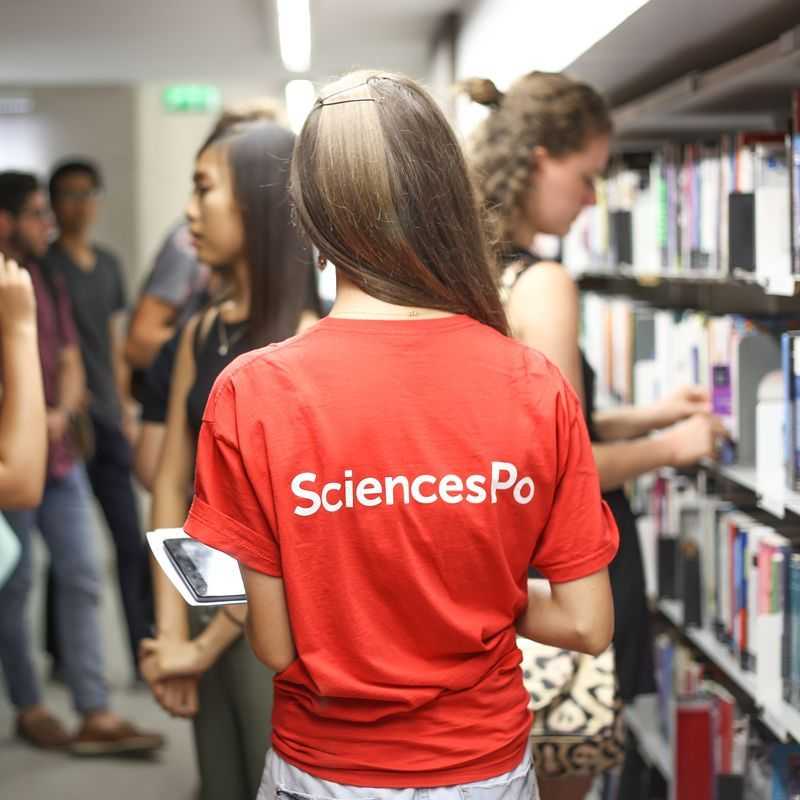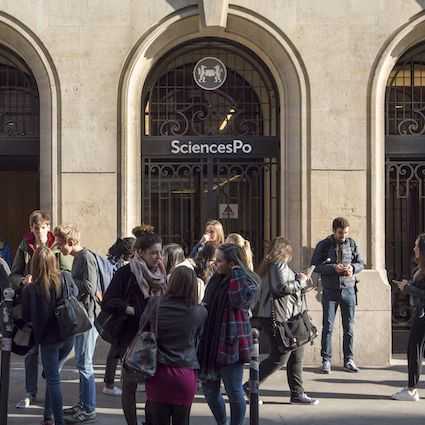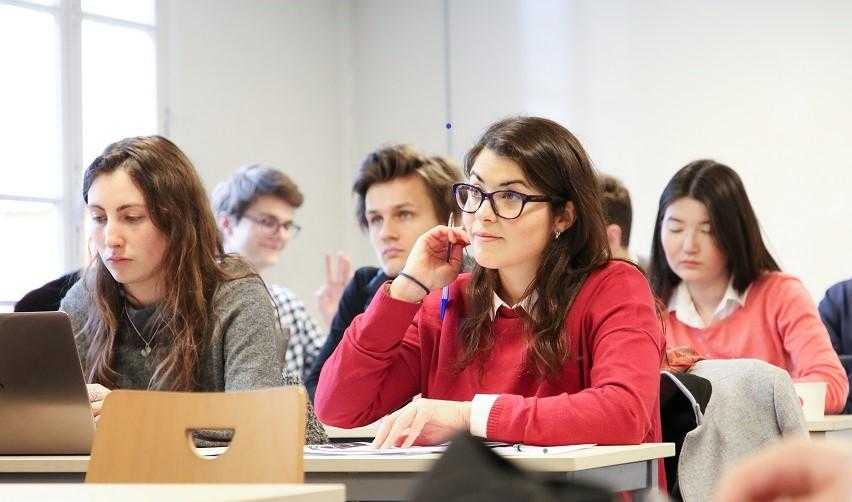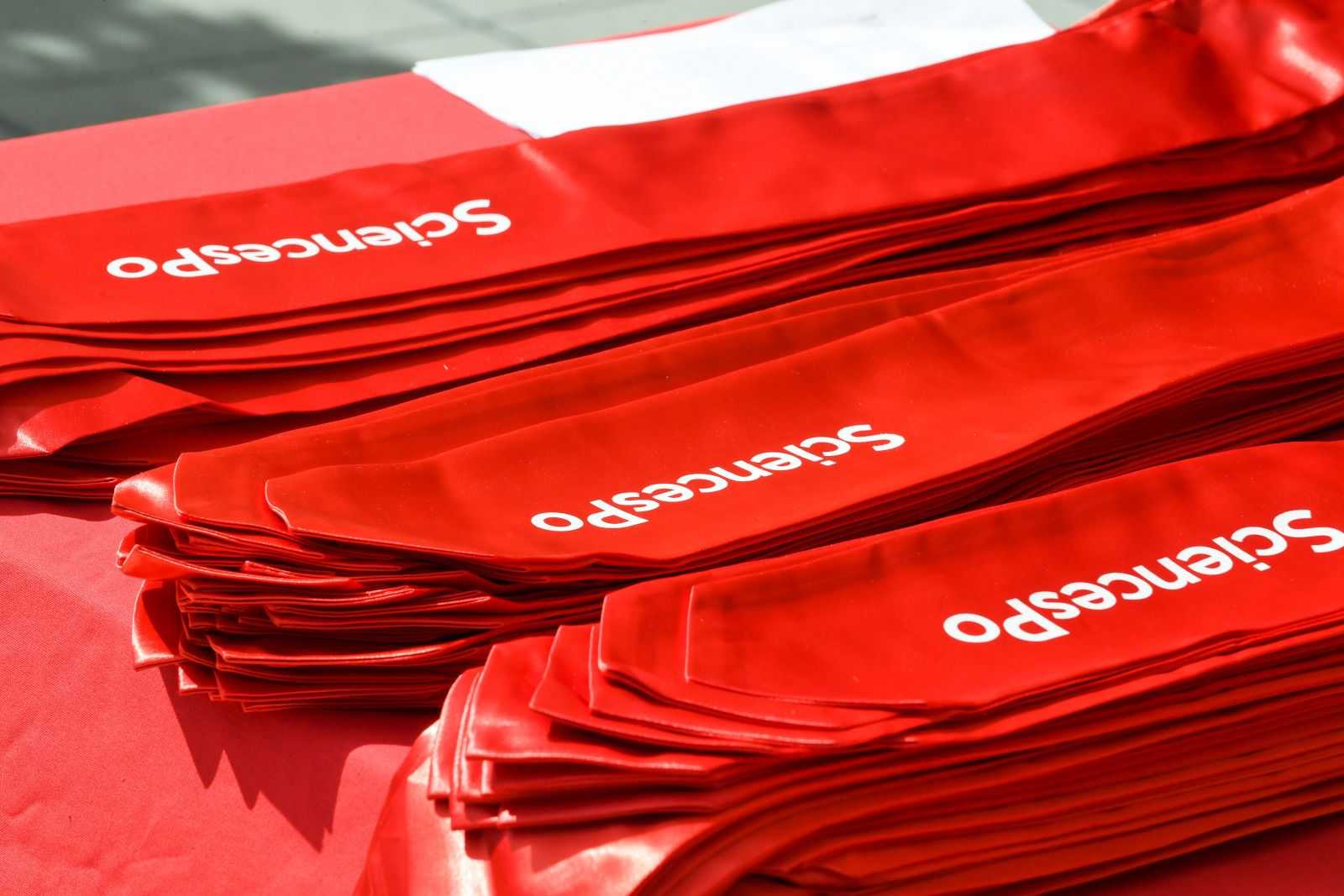
Home>Academics>Master Programs>International Development
Master in International Development
Two-year Master's
Programme in English
120 ECTS minimum
Information Sessions: Masters

Discover all the Master's programs offered by our 7 professional Schools at Sciences Po and explore the wide range of specialisations available during our webinars dedicated to applicants.
General objectives
The Master degree in International Development at PSIA seeks to train students to identify, understand and address the contemporary challenges of development.
Development is a dynamic and ever-changing field that involves a multiplicity of sectors and actors and requires innovative processes to effectively contribute to poverty alleviation.
PSIA's Master in International Development is designed to equip students with the indispensable knowledge, the transferable skills and the experience to tackle current and future development issues.
Main orientations and specific features
The curriculum provides an interdisciplinary approach that blends theory and practice to foster critical analysis of the development field.
Students explore the cooperation, connections and partnerships between actors, sectors and mechanisms that contribute to development.
The programme offers a progressive foundation on development economics and finance that is made accessible even to students with little to no previous background in the discipline.
It also exposes students to indispensable courses on policies and projects, actors and institutions, governance and sectors.
Thanks to our faculty community, comprising academics and practitioners, students develop and refine their analytical and practical skills
A special focus is placed on acquiring essential skills in policy design, project management, monitoring and evaluation, including quantitative evaluation, and applied economics and finance.
Programme structure
This intensive two-year programme is divided into three academic semesters and one semester away from campus (dedicated to either a professional internship, a master thesis under the supervision of a Sciences Po researcher or an exchange study program at a partner university).
Each academic semester, students choose 1 core course from each compulsory bloc (2 blocs per semester). Each bloc offers a variety of courses allowing students to select their courses depending on their previous background or experiences, their personal interests, and professional goals.
Students in the Master in International Development can select freely any of the concentrations offered at PSIA and are encouraged to choose a
ccording to their previous background and their professional goals. They can either select 2 concentrations or 1 concentration and the Enhanced Master option that gives them the possibility to select one extra core class.
Students enrolled in a dual degree can only select one concentration.
Through the selection of concentrations or enhanced master option, students complement their studies in development focusing on a specific region of the world - hence developing their capacity to identify the regional dynamics that can influence development - and/or focusing on a specific theme that adds value and perspective to their core learning of development.
PSIA’s Pedagogical Committee approved an amended degree structure for students starting PSIA degree programs in September 2020. Further details regarding PSIA’s general program structure.
Below is the degree structure for the Master in International Development

Download the Program structure (PDF, 69 Kb).
The degree structure for students in the following programs can be found at: Dual Degree program, Joint Master program and One-Year Master program.
Courses
Career Opportunities
Graduates will find openings in the private sector (profit and non profit) as well as the public sector. In public agencies, national, regional, and local governments, as well as international organizations and agencies, graduates will work, amongst other roles, on the formulation, management and evaluation of public policies and projects. In the private sector, they may work for example as project managers, consultants and in the innovation sector for applied research projects as project designer and managers.
Scientific advisor
Justine Knebelmann is an Assistant Professor of Economics at Sciences Po. She specializes in Development Economics and Public Finance. Her research revolves around state capacity in Sub-Saharan Africa, on topics such as taxation, digitization and public service delivery.
She works closely with government partners using impact evaluation methods and randomized experiments embedded in public policies. Over the past ten years, she has developed collaborations with national and local governments in Uganda, Senegal, and the Gambia.
She is involved in the formulation of policy recommendations stemming from her research, and her projects are affiliated with organizations aiming to connect research and policy, such as J-PAL, the Institute for Fiscal Studies, the International Growth Centre, the Fund for Innovations in Development.
Before joining Sciences Po, Justine was a Postdoctoral associate in the Economics Department at MIT. In this role, she was a member of J-PAL's Digital Identification and Finance Initiative in Africa. She completed her PhD in Economics at the Paris School of Economics. Before Sciences Po, she taught in the Economics Department of the Ecole Normale Supérieure, Paris, and in J-PAL's African Scholars program.
Meet our faculty
The Master’s curriculum is taught by a diverse faculty team, comprising of Sciences Po professors, academics from partner universities and development practicioners coming from a great variety of fields. Meet one of them in the video below.
Dr Saskia Ravesloot, is a respected thought leader with expertise in guiding staff and teams in diverse cultural settings, managing political and policy dialogue, programming, design, implementation, monitoring and evaluation of projects and programmes, as well as evidence-based advocacy, capacity building and training, especially on the gender-responsive rights-based approach.
Dr Ravesloot works for bilateral and multilateral organizations (such as: European Union, UNDP, UN Women, GIZ, LuxDev), in more than 30 countries, mostly in Africa, but also Asia and Latin-America. She is passionate and integrity-driven about sharing her experiences with students and young colleagues from all over the world.
Dr Ravesloot is a PSIA faculty member since 2016 and teaches in the Spring Semester preparing our students to be active actors towards achieving gender equality in international cooperation.
Testimonials from graduates
- Mélissa, National Project Manager, UN Women
- Fabio, Senior Policy Officer and Data Scientist at the German Federal Ministry for Economic Cooperation and Development (BMZ)
- Chuying, Community Management and Events Specialist, the World Economic Forum
- Dr. Mobarak, Assistant Professor, London School of Economics
- Aminatou, Policy Associate, Abdul Latif Jameel Poverty Action Lab (J-Pal) in Ghana
- Aniya, Associate research lead at the Innovation for Policy Foundation
- Coumba, Consultant specialized in entrepreneurship and inclusive economy in Africa at AFD in Paris
- Désirée, Second Secretary for Political Affairs at Swedish Embassy in Mexico City
- Maha, Associate Expert at the UN Political and Peacebuilding Affairs
- Shriya, Coordinator of Partnerships at United Nations Capital Development Fund, India
- Anithasree, Senior Associate, Global Vaccines Delivery, Clinton Health Access Initiative, Cambodia
- Andreas, Director for the offices in Francophone West Africa Innovations for Poverty Action in Ivory Coast
- Dilek, Programme Manager in the Project on Peace and Security in the MENA Friedrich Ebert Stiftung Foundation, in Lebanon
- Xiaotong, Project Assistant at the Beijing Organizing Committee for the 2022 Olympic and Paralympic Winter Game
- Vinicius, Public Sector Specialist at the World Bank in Mozambique
- Valentin, Public Sector Analyst at the European Investment Bank in Luxembourg
- Hyojeong, CEO and Founder of NomadHer
- David, Innovation Executive at Brink London
- Leana, Project Manager at Impact Partner
- Laura, Inclusive Business Consultant at Hystra Paris
- Marie-Charlotte, Gender & Disability Project Officer for Humanity & Inclusion (formerly known as Handicap International)
- Bianca, Associate Project Officer at UNESCO
Discover PSIA 2023 Summa Cum Laude:
CONTACTS
Academic Advisor: Thibaut Jaulin
Academic Assistant: Mélissa Deretz
Secretariat open:
- Monday, Tuesday and Thursday 9:30-12:45 and 2:15-4:45;
- Wednesday and Friday 9:30-12:45
Key information about the application process (requirements, documents, deadlines and calendar, etc) can only be found on Sciences Po’s Admissions website.




